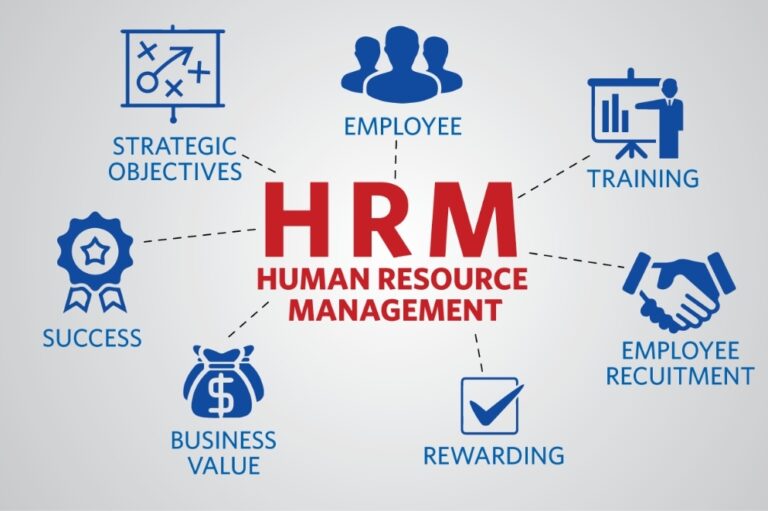With an ever-increasing number of job seekers competing for positions, the process of attracting and hiring top talent has become more challenging than ever before. The process of recruitment can often be tricky, time-consuming, and overwhelming for HR professionals. However, organizations can overcome these hurdles with the help of HRMS software’s recruitment module. This essential tool can significantly enhance and optimize the recruitment process, ensuring that businesses can efficiently identify and onboard the best candidates for their needs. Let’s explore how incorporating an HRMS recruitment module can revolutionize your recruitment efforts.
Introduction to HRMS Recruitment Module
The part in an HRMS that helps make hiring easier is called the recruitment management system. It does a lot of things, like putting up job ads, finding people to hire, picking the right ones, and getting them started.
A big plus of using a recruitment system in your HRMS is that it works with other HR software tools. This means it can do stuff like posting jobs in many places, checking resumes, and talking to people who want to work for you. When your HRMS has a recruitment system built in, it saves time and makes hiring people smoother.
Having the recruitment system in your HRMS also means all the information and steps for hiring are in one place. This makes it easier for HR professionals to see who’s applying, welcome new hires, and keep track of everyone from when they start working to how they’re doing on the job. This way, everyone’s on the same page, and things run smoothly.
Understanding the Role of HRMS Software in Recruitment
A strong recruitment system in your HRMS offers complete candidate management tools. It lets you build a central database of candidates, save resumes, track their progress, and communicate with them. This means you have all the info you need to make smart choices and stay in touch during the hiring process with the help of HRMS software.
The HR Recruitment Module makes hiring easier for HR teams. HR folks have a lot to do when hiring, like setting up interviews, talking to hiring managers, and checking backgrounds. A recruitment system in HRMS makes these tasks simpler by automating workflows, setting up interviews, and allowing collaboration. With less manual work, HR can focus on important things like picking the right candidates and showing why your company is great.
Having a smooth hiring system in your HRMS is super important. When recruitment software, good candidate management, and efficient HR processes work together, HR pros have what they need to find, judge, and hire top candidates. Using an HRMS recruitment system helps you make hiring better, save time and money, and bring in a talented team that makes your company shine.
Overcoming Recruitment Challenges with HRMS Solutions
The HRMS hiring part is a complete hiring management setup. It gives you instant data and reports, helping you keep an eye on important hiring numbers like how long it takes to fill a position, how much it costs to hire someone, and which sources work best. These insights help you spot problems, improve your hiring plans, and use facts to make better decisions that make your hiring process faster and better. Using the HRMS hiring system makes it easy to sort out all your hiring problems. You can learn what the main goals of hiring tools are and how to handle hiring easily.
Conclusion
It’s clear that adopting a HRMS recruitment module can be a game-changer for businesses striving to optimize their recruitment processes. With the rising competition among job seekers, finding and hiring top talent has become increasingly challenging. However, by integrating an effective recruitment system within an HRMS, organizations can overcome these challenges and streamline their hiring efforts.
The recruitment module not only simplifies the hiring process but also offers comprehensive candidate management tools, allowing HR professionals to build centralized databases, track applicant progress, and communicate effectively with potential hires. This centralized approach saves time, reduces manual efforts, and ensures that all hiring-related tasks are efficiently managed within one system.
Moreover, the integration of HRMS software with recruitment modules enables real-time analytics and reporting, providing valuable insights into recruitment metrics like time-to-fill and cost-per-hire. These insights empower organizations to identify bottlenecks, optimize recruitment strategies, and make data-driven decisions to improve overall efficiency.

